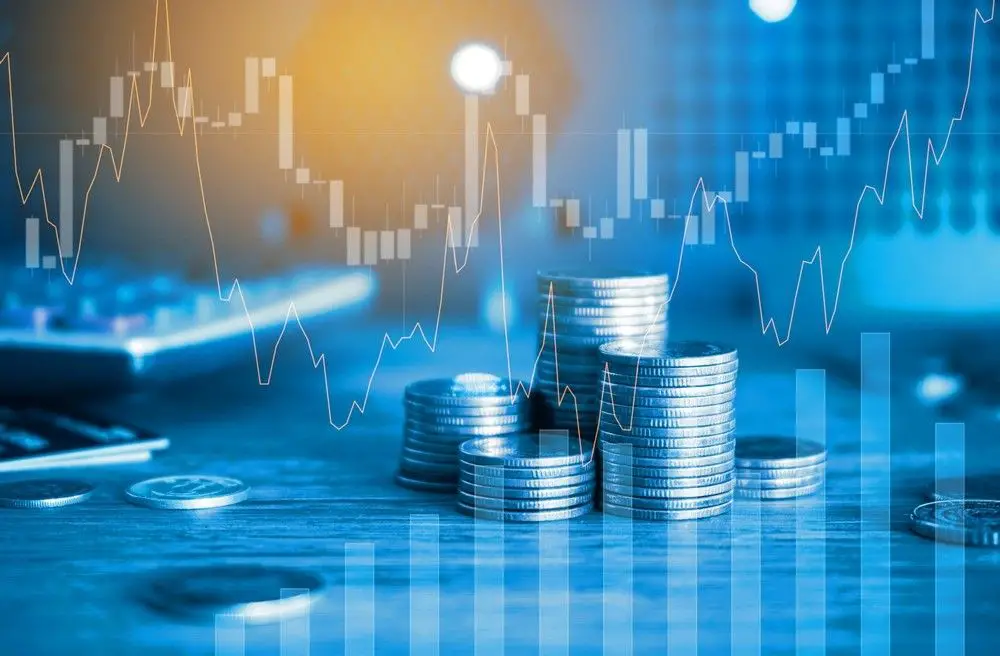Difference Between Financial Investment and Economic Investment. Let’s face it—investment can be a bit of a puzzle.
You might hear terms like “financial investment” and “economic investment” thrown around, and if you’re scratching your head wondering what the difference is, you’re not alone.
These terms are often used interchangeably, but they actually refer to two very different concepts.
In this article, we’re going to break down these terms in plain English, so by the end, you’ll know exactly what sets them apart.
Difference Between Financial Investment and Economic Investment
Understanding the Basics: Investment 101
Before we dive into the nitty-gritty details, let’s get on the same page about what “investment” actually means.
In the simplest terms, an investment is the act of committing money, time, or resources to something with the expectation of some future benefit.
This could be anything from putting money into a savings account to building a new factory.
But not all investments are created equal—this is where financial and economic investments come into play.
What is Financial Investment?
So, what exactly is financial investment? In a nutshell, a financial investment is when you put your money into financial assets like stocks, bonds, or real estate with the expectation of earning a return.
It’s all about putting your money to work to make more money.
Think of it like planting seeds in a garden—you’re hoping those seeds grow into something bigger and better.

Types of Financial Investments
Financial investments come in many shapes and sizes, and they all have their unique characteristics.
Let’s take a closer look at some of the most common types.
Stocks and Bonds
Stocks and bonds are the bread and butter of financial investments.
When you buy a stock, you’re purchasing a small piece of a company.
If the company does well, your investment grows.
Bonds, on the other hand, are like loans you give to governments or corporations—they pay you back with interest over time.
Stocks can be more volatile, with prices that fluctuate based on market conditions, while bonds are generally considered safer, providing steady returns.
Mutual Funds and ETFs
If you’re not keen on picking individual stocks or bonds, mutual funds and ETFs (Exchange-Traded Funds) might be more your speed.
These are collections of stocks, bonds, or other assets bundled together, giving you a diversified investment without the hassle of managing it all yourself.
Mutual funds are typically managed by professional portfolio managers, whereas ETFs trade on exchanges just like stocks, offering flexibility and often lower costs.
Real Estate and Commodities
Real estate is another popular financial investment. Whether you’re buying a rental property or flipping houses, the goal is to buy low and sell high.
Real estate can provide income through rent and potential appreciation in property value.
Commodities like gold, silver, or oil are also considered financial investments—these tangible assets can protect against inflation and market volatility.
They often act as a hedge in times of economic uncertainty, providing a stable store of value when other investments falter.
Characteristics of Financial Investments
Financial investments typically share a few key characteristics: liquidity, risk, and return.
Liquidity refers to how quickly you can convert your investment into cash. Stocks and bonds, for instance, are generally more liquid than real estate.
You can sell your shares or bonds with relative ease in the financial markets, whereas selling a property might take months.
Risk and return go hand in hand—the higher the potential return, the higher the risk you’re likely taking. For example, stocks might offer high returns, but they can also plummet in value, whereas bonds offer more modest returns with less risk.
What is Economic Investment?
Now that we’ve covered financial investment, let’s shift gears to economic investment.
Economic investment is all about putting resources into projects that will increase the economy’s productive capacity.
This could mean building infrastructure, investing in education, or funding new technologies.
It’s less about earning a quick buck and more about long-term growth and prosperity.
Economic investments aim to create assets that will yield benefits for society as a whole, often improving quality of life and economic stability.

Types of Economic Investments
Economic investments can be a bit harder to pin down because they’re often broader and more complex than financial investments. Here are some of the main types.
Infrastructure Development
Infrastructure investment is one of the most visible forms of economic investment.
Building roads, bridges, and power plants doesn’t just create jobs—it also lays the foundation for future economic growth.
For instance, a new highway can reduce transportation costs, connect markets, and spur economic activity in previously isolated regions.
This type of investment often requires significant capital and time, but the benefits can be widespread and long-lasting.
Human Capital
Investing in people is another form of economic investment.
This includes things like education, healthcare, and job training. By improving the skills and well-being of the workforce, these investments can lead to a more productive and prosperous society.
Educated and healthy workers are more efficient and innovative, contributing to economic growth.
For example, countries that invest heavily in education tend to have higher levels of economic development and technological advancement.
Research and Development (R&D)
R&D is all about innovation. By investing in new technologies, companies and governments can drive future economic growth.
Think of it as planting the seeds for tomorrow’s breakthroughs. R&D can lead to new products, improved processes, and even entirely new industries, all of which can have a significant impact on the economy.
Countries that prioritize R&D tend to be more competitive on the global stage, leading to higher growth rates and more robust economies.
Characteristics of Economic Investments
Economic investments are usually long-term and often involve significant upfront costs.
Unlike financial investments, the returns from economic investments aren’t always immediate or easy to measure.
They also tend to have broader social and economic impacts, affecting everything from employment rates to overall economic stability.
For instance, investing in public education might not show immediate returns, but over time it can lead to a more skilled workforce and higher economic productivity.
Key Differences Between Financial and Economic Investment
Now that we’ve got a handle on what financial and economic investments are, let’s dig into what sets them apart.
Purpose and Motivation
The primary difference between financial and economic investment lies in their purpose.
Financial investments are typically driven by the desire for personal or corporate profit.
Investors aim to grow their wealth by buying assets that will increase in value or generate income.
Economic investments, on the other hand, are usually aimed at boosting the overall economy and improving societal well-being.
These investments often seek to create long-term value for society rather than immediate financial returns.
Risk and Return
Risk and return are also key differentiators. Financial investments often come with a clear risk-return profile—you know what you’re getting into, more or less.
For instance, investing in stocks might yield high returns, but it also comes with the risk of losing money if the market turns sour.
Economic investments, however, carry a different kind of risk. They’re often subject to political, social, and economic factors that can be harder to predict.
The returns, while potentially massive, are usually realized over a much longer timeframe.
For example, the benefits of building a new airport might not be fully realized until years after construction is completed.
Impact on the Economy
Financial investments can have a significant impact on the economy, but they tend to do so indirectly.
For example, a booming stock market can boost consumer confidence and spending, which in turn stimulates economic activity.
However, the impact of financial investments is often limited to the financial markets and the investors themselves.
Economic investments, however, have a more direct impact.
Building a new highway, for instance, can create jobs, improve transportation efficiency, and stimulate economic growth in the surrounding areas.
These investments often lead to more profound and widespread economic benefits, affecting everything from employment levels to the quality of public services.
Also Read -What Does Greenwashing Mean in Sustainable Investing?
The Interconnection Between Financial and Economic Investments
While financial and economic investments are different, they’re also interconnected.
Financial investments can fund economic investments—think of a government issuing bonds to finance infrastructure projects.
When investors buy these bonds, they are essentially lending money to the government to carry out economic investments.
Likewise, successful economic investments can create new opportunities for financial investments, such as when a growing economy boosts the stock market.
For example, a new technology developed through R&D might lead to the creation of new companies, which in turn offer new stocks for investors to buy.
Real-World Examples: How They Differ in Practice
Sometimes the best way to understand a concept is to see it in action. Let’s look at some real-world examples that highlight the differences between financial and economic investments.
Financial Investment Example: Stock Market Speculation
Imagine you buy shares in a tech startup because you believe its stock price will skyrocket. You’re making a financial investment.
Your primary goal is to earn a profit from the increase in the stock’s value. Whether or not this benefits the broader economy is secondary to your desire to make money.
The success of your investment largely depends on the company’s performance and market conditions, but your focus is on the financial return rather than any broader economic impact.
Economic Investment Example: Building a New Highway
Now, think about a government that decides to build a new highway. This is an economic investment.
The goal isn’t to make a quick profit but to improve infrastructure, which will boost economic activity in the long run.
The benefits might not be immediate, but over time, the highway could lead to increased trade, job creation, and overall economic growth.
The impact of this investment is widespread, affecting not just the local economy but potentially the national economy as well, by improving connectivity and reducing transportation costs.
Pros and Cons of Financial Investments (Continued)
On the plus side, financial investments can offer high returns and are often more liquid than other types of investments.
This means you can easily buy or sell your financial assets like stocks, bonds, or mutual funds, giving you flexibility and quick access to your money when you need it.
Financial investments are also diverse, allowing you to spread your risk across different types of assets, sectors, and markets.
By diversifying, you can protect yourself against significant losses if one investment doesn’t perform as expected.
However, financial investments also come with risks. The value of your investment can fluctuate based on market conditions, economic events, and changes in interest rates.
For example, stock prices can be volatile, especially in the short term, and there’s always the risk of losing money if the market takes a downturn.
Additionally, financial investments often require a certain level of knowledge and experience to manage effectively.
Without proper research and understanding, you might make poor investment decisions that could lead to significant financial losses.
Pros and Cons of Economic Investments
Economic investments also have their benefits and drawbacks.
One of the most significant advantages is their potential to contribute to long-term economic growth and societal development.
For example, investing in infrastructure or education can create jobs, increase productivity, and improve the overall quality of life in a community.
These investments can have a ripple effect, stimulating economic activity and leading to sustained growth over time.
Another advantage of economic investments is their ability to address social and economic inequalities.
By investing in areas like healthcare, education, and public infrastructure, governments and organizations can help bridge the gap between different segments of society, promoting inclusivity and social cohesion.
Economic investments can also foster innovation and technological advancements, driving economic progress and improving living standards.
However, economic investments are not without their challenges.
They often require significant upfront capital and can take years, if not decades, to yield tangible results.
For instance, the benefits of investing in education might not be fully realized until the students enter the workforce years later.
Additionally, economic investments are often subject to political and economic risks that are beyond the investor’s control.
Changes in government policies, economic downturns, or social unrest can impact the success of these investments, making them riskier and less predictable than financial investments.
Also Read – The Relationship Between an Emergency Fund and Credit/Loans
How to Choose Between Financial and Economic Investment
So, how do you decide between financial and economic investments? The answer largely depends on your goals, risk tolerance, and time horizon.
If you’re looking for quicker returns and are comfortable with risk, financial investments might be the way to go.
They can provide the opportunity to grow your wealth relatively quickly, especially if you invest in high-return assets like stocks or real estate.
However, it’s important to be aware of the risks involved and to diversify your portfolio to minimize potential losses.
On the other hand, if you’re interested in contributing to long-term economic growth and are willing to wait for returns, economic investments could be more appealing.
These investments allow you to play a role in the development of society, whether it’s through infrastructure projects, education, or healthcare initiatives.
While the returns might take longer to materialize, the impact of economic investments can be profound, leading to sustainable growth and improved living standards for future generations.
It’s also worth noting that many investors choose a mix of both financial and economic investments to balance their portfolios.
By combining the potential for quick financial gains with the long-term benefits of economic development, you can create a more diversified and resilient investment strategy.
This approach allows you to reap the benefits of financial investments while also contributing to broader economic development.
Conclusion
At the end of the day, both financial and economic investments play crucial roles in our world.
Financial investments drive wealth creation on an individual level, helping people and businesses grow their assets and achieve their financial goals.
They offer the potential for high returns, liquidity, and diversification, making them an attractive option for those looking to build wealth over time.
On the other hand, economic investments are essential for the long-term development and stability of society.
They focus on creating infrastructure, improving education, and fostering innovation, all of which contribute to the overall health and prosperity of an economy.
While economic investments might require more patience and come with higher risks, their impact on society can be far-reaching and transformative.
Understanding the differences between financial and economic investments
can help you make more informed decisions, whether you’re managing your own money or considering larger projects that impact entire communities.
Remember, the best investment strategy often involves a balance between seeking personal gain and contributing to the greater good.
By combining financial and economic investments, you can not only grow your wealth but also make a positive difference in the world around you.
FAQs
Can financial investments have economic impacts?
Yes, financial investments can have economic impacts, especially when they fund economic activities like business expansion, infrastructure projects, or research and development. However, the impact is often indirect and may not always be the primary goal of the investor.
Are economic investments riskier than financial investments?
Economic investments can be riskier in the sense that they often involve long-term commitments and are subject to broader economic, political, and social risks. However, financial investments can also be risky, particularly if they involve volatile assets like stocks or commodities.
Can an individual make economic investments?
While most economic investments are made by governments or large organizations, individuals can also contribute through activities like funding educational programs, investing in startups focused on innovation, or supporting infrastructure development through crowdfunding platforms.
What is the role of government in economic investment?
Governments play a significant role in economic investment, particularly in areas like infrastructure, education, and public services. These investments are often aimed at promoting long-term economic growth, stability, and societal well-being.
Is it better to focus on financial or economic investment?
There’s no one-size-fits-all answer to this question. It depends on your financial goals, risk tolerance, and time horizon. Many investors choose to diversify, incorporating both financial and economic investments into their portfolios to balance potential returns with broader economic impact.


2 thoughts on “What is the Difference Between Financial Investment and Economic Investment?”